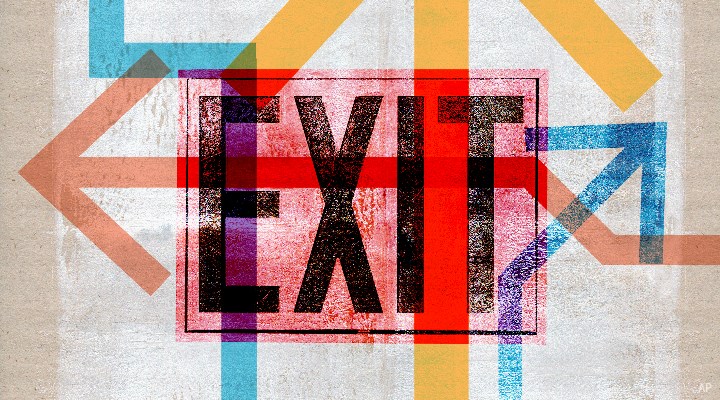
Broad-based stock market losses in 2022 have opened opportunities for investors to scoop up stocks of high-quality companies at discount prices.
Stocks that earn Morningstar’s wide moat designation--companies with strong competitive advantages that should help them outperform their peers over the next 20-plus years--have fared worse this year than the overall market.
As a group, wide moat companies have lost 14.1% for the year, nearly 1% more than the Morningstar U.S. Market index losses of 13.3%. The underperforming wide-moat stocks group includes Biogen (BIIB), down 19% so far this year, and cloud-based CMS provider Salesforce (CRM), where shares are down 24%. Both are now trading in undervalued territory and are considered five-star stocks by Morningstar analysts.
It’s especially notable that wide moat stocks are lagging in the current economic environment of high inflation and rising interest rates, where companies with the strongest competitive advantages ought to be able to shine.
But many wide moat stocks were also particularly overvalued coming into 2022, and expensive names have been at the epicenter of the market’s declines so far this year. Now, however, many wide moat stocks have fallen far enough in price that they’re undervalued when compared against the fair value estimates set by Morningstar analysts.

We screened the Morningstar Wide Moat Focus Index to find wide moat companies with Morningstar’s 5-star rating that are currently trading at discount prices. Here are the eight most undervalued names in the index:

Meta (FB)
“Meta’s large and growing user base and the rich data that it generates help advertisers post more effective ads, in terms of brand awareness, resulting in high return on investment. With higher ROI, more advertisers jump on board, allowing Meta to further monetize the network. The firm’s large audiences and the continuous consumer engagement are likely to continue to drive demand for Meta ad inventories, although possibly at lower prices.”
--Ali Mogharabi, senior analyst
Biogen (BIIB)
“Biogen has achieved strong profitability based on its Roche collaboration in oncology and Biogen's diversified MS franchise, and has the intangible assets to support a wide moat. We think the firm does face environmental, social, and governance risks, particularly related to potential U.S. drug price-related policy reform (Biogen sees roughly 60% of its sales from the U.S. market) and ongoing potential for product governance issues (including litigation). While we have factored these threats into our analysis, we don't see them as material to our valuation or moat rating.”
--Karen Andersen, strategist
Polaris (PII)
“We believe Polaris has established a wide economic moat, delivering healthy adjusted returns on invested capital (averaging 21%, including goodwill, during the past five years). We believe innovative product offerings and growth of adjacent categories through acquisitions (and organically) have positioned the business to continue to capture increasing volume and profits as it reaches new end users. However, nonexistent switching costs could weigh on pricing power intermittently. In our opinion, Polaris has taken the right steps to protect its wide moat rating, with disciplined quality assurance protocols and well-developed manufacturing processes to prevent pervasive product recalls.”
--Jaime M. Katz, senior analyst
Salesforce (CRM)
“For Salesforce.com overall, we assign a wide moat rating arising primarily from switching costs, with support from a network effect as well. Salesforce.com remains the clear leader in salesforce automation (Sales Cloud). The company has gone from no product to 33% market share over the last 20 years. Customers and industry observers alike view Salesforce.com as the clear front-runner in a category that increases the productivity of sales representatives. In other words, this is mission-critical software that helps drive revenue for users. We believe customers are also reluctant to switch away from Sales Cloud because of the time, expense, and risk of implementing new applications and migrating data and the time, expense, and lost productivity of retraining the workforce on a new platform. SFA is a revenue-driving initiative and therefore is critical to users. The organizational risk of making a change is high, in our view.”
--Dan Romanoff, senior analyst
Veeva Systems (VEEV)
“We assign a wide moat rating to Veeva, stemming from switching costs and to a lesser extent intangible assets. The company provides mission-critical software for the life sciences industry. The high degree of specification behind Veeva’s software is an asset to its clients (in improving workflow and ease of adherence to regulations) and Veeva itself (clients have their complex workflow entrenched in its software). Once integrated into a company’s operating activities, the direct time and expense of switching to a competing software solution is high and comes with substantial operating risks. The downside operational risk of switching is expansive and could result in loss of data in the migration process, temporary disruption to sales activities, or even ultimately delay product launches and put the company at risk of exposure to unnecessary regulatory risk.”
--Dylan Finley, analyst
Guidewire Software (GWRE)
“Our wide moat rating for Guidewire Software is driven by higher customer switching costs and, to a lesser extent, intangible assets. Our position is that switching costs for software are driven by several factors. The most obvious would be the direct time and expense of implementing a new software platform. Additionally, there are indirect costs along those same lines, mainly lost productivity as employees move up a learning curve on the new system and the distraction of employees involved with the function where the change is occurring. Perhaps most important, there is operational risk, including loss of data during the changeover, project execution, and potential business disruption. The more critical the function and the more touch points across an organization a software vendor has, the higher the switching costs will be.”
--Dan Romanoff, senior analyst
Equifax (EFX)
“Overall, we believe Equifax merits a wide moat rating based on intangible assets.
“Equifax’s data is critical to its customers’ (often banks) underwriting decisions, and the price of its services is negligible relative to the loan amounts at risk. We estimate that North American credit bureaus’ revenue represents about 1-2 basis points of total household debt. Because the accuracy and completeness of data is critical to credit decision-making, lenders often pull from more than one credit bureau, and we do not believe pricing is the primary factor for choosing a credit bureau. We believe the barriers to entering the credit bureau business are high, as replicating a database of millions of customers would be incredibly difficult..”
--Rajiv Bhatia, analyst
Zimmer Biomet (ZBH)
“Zimmer's wide economic moat stems from two major sources: switching costs and intangible assets.
“First, there are substantial switching costs for orthopedic surgeons. The extensive instrumentation, or tool sets, used to prepare bones and install implants are specific to each company. The learning curve to become proficient in using one company's instrumentation is significant. Additionally, relative to other specialists, orthopedic surgeon skill and experience play an outsize role in the clinical outcome for the patient. These issues all leave surgeons reluctant to train and master multiple instrumentation systems, especially if procedure volume is too low to maintain high surgical facility with more than one system. Research has found surgeons stick with their preferred vendor and sales rep for 5-15 years and use that vendor for approximately 95% of their orthopedic procedures during that time.
--Debbie S. Wang, senior analyst




















